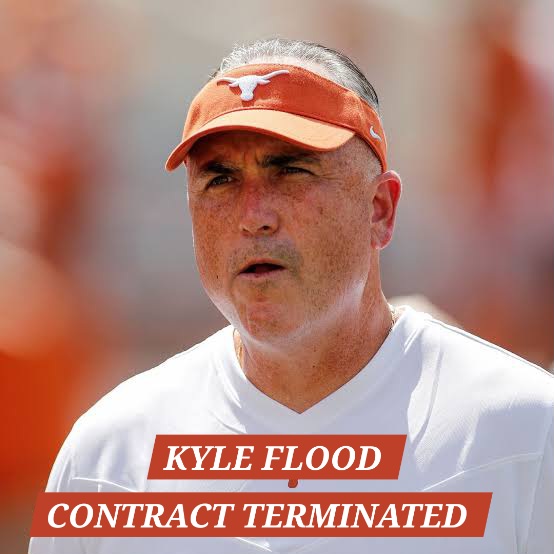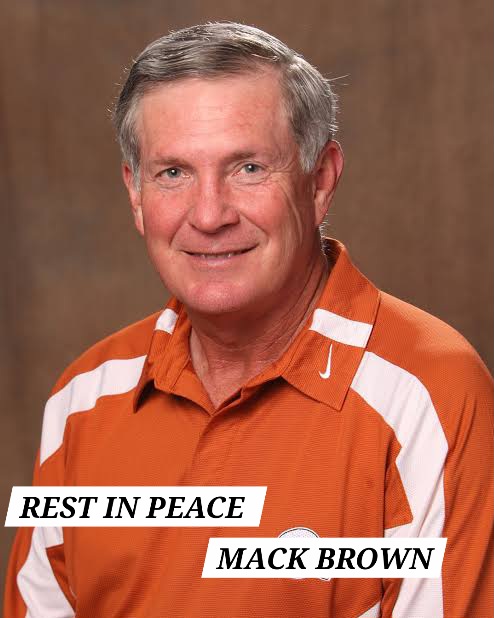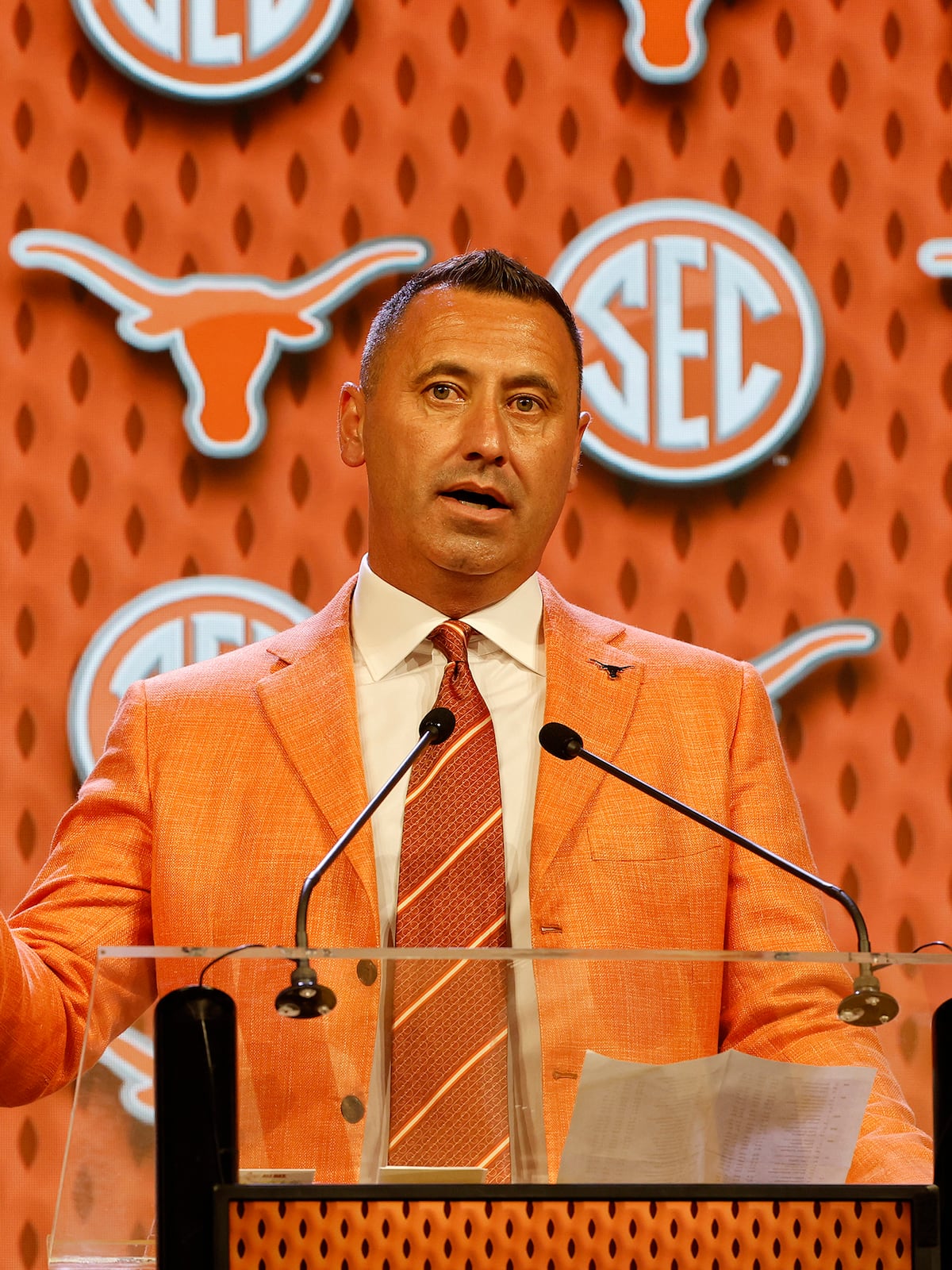Burnt Ends in Austin: Kyle Food’s Texas Longhorns Contract Terminated Amid Internal Crisis
AUSTIN, TX – May 18, 2025 — In a development that has sent shockwaves through the heart of Texas sports and campus culture alike, the University of Texas at Austin has officially terminated its longstanding contract with Kyle Food Services, the primary provider of meals and catering for the Texas Longhorns athletic program. The decision, confirmed early this morning through a joint press release issued by the UT Athletic Department and the Office of University Procurement, stems from what sources close to the matter are calling an “escalating internal crisis” that has threatened the integrity, performance, and morale of multiple programs within the university’s athletic department.
The fallout has been swift, decisive, and in many ways, symbolic. For over a decade, Kyle Food Services had served as more than just a caterer to the Longhorns—it had become embedded in the very fabric of team culture. From pregame meals in Darrell K Royal-Texas Memorial Stadium to post-practice recovery snacks at the state-of-the-art Moncrief-Neuhaus Athletic Center, Kyle Food was omnipresent.
But that era is now over.
—
Behind the Kitchen Curtain: A Brewing Crisis
The termination did not come overnight, though its announcement may have taken the public by surprise. According to multiple insiders and documents obtained through an open records request, the University began investigating Kyle Food Services as early as February 2025, following an anonymous whistleblower report that outlined alleged internal dysfunction within the company’s Longhorns division.
The whistleblower, believed to be a former Kyle Food dietitian who abruptly left the company in January, alleged that food safety protocols were being routinely bypassed to cut costs, dietary restrictions were ignored for student-athletes with specific medical conditions, and several lower-tier staffers had complained of unsafe working conditions—including refrigeration failures, supply shortages, and even verbal abuse from upper management.
The report was swiftly escalated to the office of Athletic Director Chris Del Conte, who commissioned an internal audit and brought in a third-party compliance firm to investigate. Over the next two months, the investigation uncovered alarming patterns of negligence and mismanagement:
Undocumented substitutions of key ingredients, including potential allergens, without notifying the university’s nutrition staff.
Expired inventory being re-used or re-labeled to meet demand during high-traffic days such as game weekends.
Inconsistent meal preparation protocols that led to several athletes complaining of nausea and digestion issues during the latter part of the spring training cycle.
A hostile work environment, with over 14 formal HR complaints filed against Kyle Food’s on-campus managerial staff.
Though the full audit report has yet to be released publicly, sources say the findings were damning enough to justify immediate action.
—
Breaking the Deal: UT’s Response
“Effective immediately, the University of Texas at Austin is terminating its contract with Kyle Food Services, LLC, due to breaches of safety, ethical standards, and compliance obligations,” read the statement from the university.
Athletic Director Chris Del Conte elaborated during an emergency press conference:
> “Our first responsibility is to our student-athletes’ health, performance, and well-being. When it became clear that Kyle Food was compromising that standard, we had no choice but to act swiftly. We will not tolerate systemic failure from any partner associated with Texas Athletics.”
He added that the department had already begun negotiating a temporary food services agreement with a new provider and that team nutritionists would be hands-on during the transition period.
“Every calorie, every gram of protein, and every drop of hydration matters at this level. This isn’t just about meals—it’s about maximizing our edge,” Del Conte emphasized.
—
Athlete Reactions: Relief and Frustration
For many Longhorns athletes, the news came as both a relief and a vindication of their experiences. Several players, speaking on condition of anonymity, revealed they had raised concerns about Kyle Food as early as last fall.
“I can’t count how many times I found something off in my meal—chicken that didn’t smell right, undercooked rice, missing items from my pregame plate,” said one senior football player. “When you’re training six hours a day, that’s not just annoying. That’s dangerous.”
Others recounted more severe incidents. A member of the women’s volleyball team reportedly suffered an allergic reaction to improperly labeled food during an away match weekend in February. While she recovered, the incident led to heightened scrutiny among coaching staff and the university’s medical team.
“I’ve played in three different college programs,” one men’s basketball transfer stated. “This was, by far, the worst food service I’ve experienced. Not just in terms of quality, but professionalism. They didn’t take us seriously.”
—
Kyle Food’s Response: Denial and Blame
Kyle Food Services, headquartered in Dallas and operating contracts with multiple NCAA programs across the South, issued its own statement late Friday night, calling the termination “unwarranted and political.”
“We categorically deny any wrongdoing and stand behind the hard-working members of our Austin division,” the company said. “We believe the university has used this internal review as a pretext to terminate our contract for unrelated budgetary and strategic reasons.”
The company hinted at possible legal retaliation, suggesting it may seek damages for what it called a “contractual breach without appropriate notice or opportunity for remediation.”
That assertion, however, is complicated by the university’s inclusion of an emergency termination clause—reportedly invoked for the first time in over a decade—which allows the school to end any service agreement where public health or athlete safety is deemed at risk.
—
What Comes Next: The Path Forward for UT Athletics
In the wake of this high-profile breakup, the University of Texas has moved rapidly to assure student-athletes, fans, and families that their needs will be met without disruption. According to newly released memos:
The interim food services contract will be awarded to Austin-based Heritage Meals & Nutrition, a smaller, locally-focused vendor that already supplies meals to UT’s medical school and ROTC program.
Long-term planning is underway to establish an in-house nutrition and culinary unit under the oversight of the Texas Athletics Performance Institute (TAPI), aimed at removing third-party dependency entirely.
A full-time Director of Athlete Nutrition Compliance will be hired by July, tasked with ensuring adherence to NCAA, university, and internal dietary standards.
One proposal gaining traction is to model the new food system after pro-level setups seen at places like Alabama and Oregon, with high-tech meal planning apps, custom supplements, and individualized athlete profiles linked to biometric data.
“We want to feed champions the right way,” said UT’s head football coach Steve Sarkisian. “This isn’t just a reaction. This is a chance to build something better, stronger, and smarter.”
—
Broader Impact: A Cautionary Tale for NCAA Programs
The collapse of the Kyle Food–Texas Longhorns relationship will likely reverberate far beyond the Lone Star State. Already, programs like Texas A&M and LSU—both of which maintain regional contracts with Kyle Food—have issued statements indicating they are reviewing their own partnerships.
“This situation should be a wake-up call to every athletic director in the country,” said college sports analyst and former NCAA compliance officer Donna Rainey. “Your food provider isn’t just a vendor—they are a direct stakeholder in the health, performance, and safety of your most valuable assets: your athletes.”
—
Conclusion: End of an Era, Beginning of a Rebuild
As the Longhorns prepare for the summer training season and the highly anticipated 2025 football campaign, there’s a sense of renewed urgency around what had previously been taken for granted: the meals that fuel champions. What started as a quiet investigation behind the kitchen curtain has now turned into a full-scale cultural reset for one of America’s most storied college athletic programs.
The Longhorns may have lost a vendor, but in doing so, they may have regained their commitment to excellence—one meal at a time.










